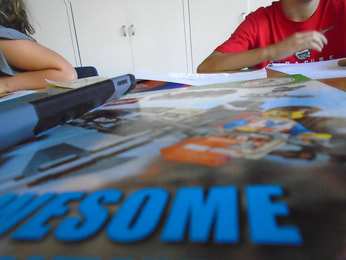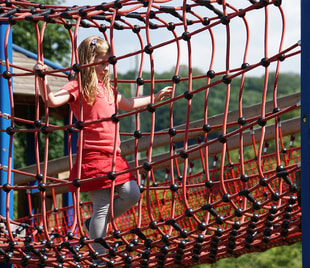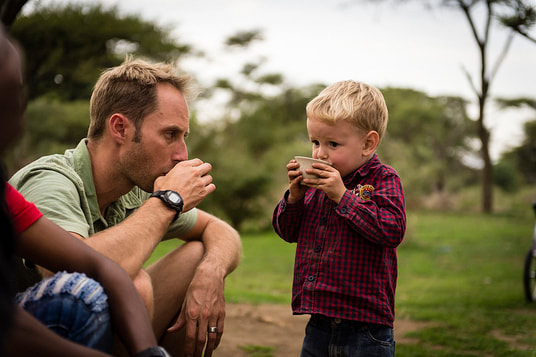Classes for Parents and Professionals
|
Advocacy and Parent Training Clinical Resources at School: Roles and Responsibilities of the School Team (APT01)
This presentation introduces parents and professionals to the range of clinical supports available in a school district, and reviews the roles and responsibilities of the School Psychologist, Social Worker, Guidance Counselor, Nurse, and other related service providers. 1 hr. Choosing a Therapist Outside of School (APT02)
This presentation addresses ways to research, identify, and select reputable therapists within the community. Parents and professionals will learn how to locate providers who are highly skilled and experienced in their area of expertise, thereby increasing the chances of a successful outcome. 1 hr. Disciplinary Strategies (APT03)
This presentation addresses options for constructively disciplining a child with a disability when a transgression has occurred. The session encourages parents and professionals to identify the reasons why problem behaviors occur and provides a strategy for teaching an alternative to inappropriate behavior, rather than simply punishing it. 2 hrs. Guardianship (APT04)
This presentation defines what guardianship is, how to assess the need for guardianship, and potential benefits and pitfalls of guardianship. This presentation will also provide information about what guardianship means according to NYS law, alternatives to guardianship, and local resources. 2 hrs. NYS Autism Reform Bill (APT05)
This presentation includes insurance-related topics such as whether insurance will cover an individual’s services, and what services are covered under the Bill. 1 hr. The Special Education Process (APT06)
This presentation focuses on the steps related to considering a student for special education services. Topics include the initial referral and evaluation, determining eligibility, types of special education services available, and the development of an IEP. 2 hrs. Strategies for Supporting Inclusion (APT07)
This presentation describes the full continuum of services for students with special needs, from center-based programs to self-contained classrooms to collaborative teaching models, mainstream settings, and related services. The session will evaluate the pros and cons of each model, and also provide “best practice” guidelines for evaluating progress toward each child’s specific placement goals. 2 hrs. |
Autism ASD Training Series: Managing Unusual Responses to Sensation (ASD01)
This presentation reviews the range of sensory processing difficulties that can be seen in ASD. Over- and under-sensitivity to naturally occurring stimuli can affect visual, tactile, auditory, proprioceptive, olfactory, and taste perception. A discussion of remediation strategies will focus on occupational therapy services, systematic desensitization, “time and place” training, self-monitoring/feedback, and appropriate requesting. 2 hrs. ASD Training Series: Overcoming Difficulties with Processing Information (ASD02)
This presentation reviews challenges to learning that can be seen in ASD. Parents and professionals will learn how sensation, perception, attention, interpretation, memory, and processing can affect a child’s ability to retrieve and use information. A discussion of remediation strategies will address ways to increase attending, organization, study skills, and test-taking skills through practice activities, pre-teaching, re-teaching, and reinforcing “rules.” 2 hrs. ASD Training Series: Overcoming Challenges in Communication and Language (ASD03)
This presentation reviews the range of communication difficulties that can be seen in ASD. A discussion of remediation strategies will focus on speech services, augmentative and assistive technology, functional communication training, incidental teaching, and the use of visual supports for language. 2 hrs. ASD Training Series: Managing Restricted Repertoires of Interests and Activities (ASD04)
This presentation focuses on how to manage the limited range of interests with individuals with ASD. Given their preference for sameness, the interests and scope of activities preferred by children with ASD can be narrow and restricted. This presentation will discuss ways to widen a child’s interests through exposure and experience, while at the same time setting limits on narrow or restricted interests. 2 hrs. Autism Spectrum Disorder in Fragile X Syndrome (ASD05)
This presentation will provide an overview of Fragile X Syndrome, the most commonly known single gene disorder associated with ASD. This presentation will focus on effective interventions for the unique aspects of Fragile X that can adversely impact treatment effectiveness. Interventions for poor motor coordination, heightened arousal and anxiety, and pronounced intellectual and expressive language deficits will be discussed. 1.5 hrs. High Functioning ASD in Elementary School, Middle School, and High School (ASD06)
This presentation focuses on providing participants with an overview of the characteristics of individuals with ASD identified as being “high functioning.” The DSM-5 criteria for ASD will be briefly reviewed, with an emphasis on behaviors and characteristics described in the criteria that are often seen in individuals described as “high functioning.” Emphasis will be placed on the behaviorally-based assessment and intervention of executive functioning and social skills. 2.5 hrs. |
Behavior Support
Anger and Coping (BEH01)
This presentation provides participants with an increased awareness of anger states, and reviews possible environmental triggers for anger in individuals with ASD and other developmental disabilities. The presentation will also describe a variety of coping and relaxation strategies that can be taught. 2 hrs.
Basic Strategies for Increasing and Decreasing Behavior (BEH02)
This presentation gives an overview of basic principles of reinforcement and punishment, and describes how various schedules of reinforcement can be implemented to teach and maintain new skills. 2 hrs.
Classroom Supports for Individuals with ASD (BEH03)
This presentation covers a variety of topics related to developing positive behavior support plans in the classroom. Topics include: Principles of diverse classrooms, assessment of academic difficulties, teaching coping skills, use of visual supports in the classroom, and reinforcement strategies. Procedures for the assessment and intervention for problem behavior will also be reviewed. 3 hrs.
Context-Based Strategies (BEH04)
This presentation describes a context-assessment approach to looking at problem behavior. Interventions for assessing and addressing context events will be reviewed, along with strategies for creating a more positive context for learning at home, in the classroom, and in the community. 2 hrs.
Data Collection (BEH05)
This presentation reviews the many reasons for collecting data, and describes a variety of ways to collect data for skill acquisition or behavior reduction goals. Several examples of data collection forms will also be presented. 1.5 hrs.
Developing Effective Behavior Support Plans (BEH06)
This presentation reviews the key components of organizing and writing a behavior support plan. Participants will learn how to operationally define problem behavior, incorporate relevant background information, and use key information from the FBA to address problem behavior. Emphasis will be placed on proactive teaching, short-term prevention, effective redirection, and crisis intervention strategies that can be implemented in naturalistic settings. 2.5 hrs.
Elopement and Wandering (BEH07)
This presentation provides participants with an overview of strategies for understanding and responding to the risks associated with elopement and wandering in individuals with ASD and other developmental disabilities. The presentation will review environmental safeguards, as well as skills to address safety concerns. 2 hrs.
Functional Behavior Assessment (BEH08)
This presentation provides an overview of how to conduct a functional behavior assessment (FBA). Topics include how to determine if a behavior needs to be targeted for assessment, how to write an operational definition, and how to incorporate a variety of assessment tools and behavior observation techniques into the FBA. Intervention strategies and recommendations will also be discussed. 2.5 hrs.
Functional Behavior Assessment: Intervention Recommendations (BEH09)
This presentation provides an overview of the different intervention strategies that can be implemented, depending on the function of a problem behavior. Intervening at the level of the antecedent, the target behavior, and at the level of the consequence will be discussed. 2 hrs.
Generalization and Maintenance (BEH10)
This presentation provides an overview of how generalization and maintenance are an essential outcome for effective behavior intervention. Information for developing programs that help promote generalization of skills across settings, people, and situations will be reviewed. Various methods for achieving generalization and maintenance, along with potential problems that may arise, will also be described. 1.5 hrs.
Managing Transitions (BEH11)
This presentation overviews the transition difficulties that individuals with ASD and other disabilities may encounter. The training provides a variety of practical solutions to prepare individuals for transitions from one place or activity to another. Evidence-based research articles highlighting specific examples of transition supports will be reviewed.
2.5 hrs.
2.5 hrs.
Positive Behavior Support (BEH12)
This presentation will review the critical features of Positive Behavior Support (PBS), including comprehensive lifestyle change and behavior support from a lifespan perspective. Participants will learn to incorporate key tenets of PBS into their treatment planning, including ecological validity, stakeholder participation, social validity, multicomponent intervention, broad systems change, cultural sensitivity, and an emphasis on the prevention of problem behavior. 2.5 hrs.
School Refusal: Assessment and Intervention (BEH13)
This presentation is a two-part training divided into an assessment component and an intervention component. The assessment component defines the dimensions of school refusal, the role of anxiety in school refusal, assessment procedures, and the functions of school refusal behavior. The intervention component provides detailed information about treatment options, as well as data collection systems for monitoring this challenging behavior.
4 hrs.
4 hrs.
Self-Management: Developing an Effective Intervention (BEH14)
This presentation defines what self-management is, and describes the steps to implementing a good self-management program. Self-management programs can address either skill acquisition goals or behavior reduction goals. Fading the support of staff or caregivers will also be described.
1.5 hrs.
1.5 hrs.
Strategies for Crisis Management (BEH15)
This presentation will review the three phases of a crisis: The prevention phase, the precursor phase, and the crisis intervention phase. The presentation will highlight early recognition of low-level behaviors that indicate a crisis is imminent, and focus on the implementation of safe and effective crisis management strategies. Verbal and non-verbal calming techniques will also be described.
3.5 hrs.
3.5 hrs.
Vehicle Safety (BEH16)
This presentation will describe the importance of a collaborative approach between transportation personnel, educational staff, and school administrators to promote vehicle safety for individuals with ASD and other developmental disabilities. Rules for entering and exiting a vehicle, as well as how to maintain an active supervision approach while in the vehicle, will also be reviewed. Strategies for how to intervene when a problem behavior occurs while riding in the vehicle, as well as skills to teach an individual to travel safely, will also be discussed.
3 hrs.
3 hrs.
|
|
Communication Communication-Based Intervention at Home, in School, and in the Community (COM01)
This presentation provides an overview of the basic principles of communication from a developmental perspective. Functional communication training is presented as an effective strategy to help overcome challenges that arise when faulty communication systems are being used. 2 hrs. Functional Communication Training (COM02)
This presentation describes the role of communication in the development of challenging behavior. One highly effective solution for communication-based challenges is Functional Communication Training, which is described in detail during this presentation. Research describing how to identify the function of problem behavior prior to teaching an alternative communicative response will also be discussed. 2 hrs. |
|
Co-Occurring Conditions Clinical Training Series: Anxiety Disorders (COC01)
This presentation addresses a variety of anxiety disorders that can co-occur with ASD, including panic disorder, phobias, obsessive-compulsive disorder, post traumatic stress disorder, and generalized anxiety disorder. This presentation will focus on recognizing the disorders and identifying effective interventions. 2 hrs. Clinical Training Series: Disruptive Behavior Disorders (COC02)
This presentation addresses a variety of behavioral disorders that can co-occur with ASD, including Attention Deficit Disorder, Conduct Disorder, and Oppositional Defiant Disorder. This presentation will focus on recognizing these disorders and identifying effective interventions. 2 hrs. Clinical Training Series: Elimination Disorders (COC03)
This presentation describes the elimination disorders of enuresis and encopresis. Behavioral interventions to address these disorders, including how to respond to toileting accidents, will be reviewed. 2 hrs. Clinical Training Series: Mood Disorders (COC04)
This presentation addresses a variety of mood disorders that can co-occur with ASD, including depression and bipolar disorder. The session will focus on recognizing the disorders and identifying effective interventions. 2 hrs. Clinical Training Series: Psychopharmacology (COC05)
This presentation looks at the pros and cons of medication as a component of a comprehensive treatment plan. Participants will learn about the various treatment options that are available, and discuss their rights and responsibilities regarding the use of medication. Parents and professionals will learn to monitor the impact of medication using simple data collection systems to monitor mood, affect, and behavior. 2 hrs. Clinical Training Series: Sleep Disorders (COC06)
This presentation will address a variety of sleep disorders that can co-occur with ASD, including insomnia, hypersomnia, narcolepsy, disrupted sleep, nightmares, sleep terrors, and sleepwalking. The session will focus on recognizing the disorders and identifying effective interventions. 2 hrs. Diagnosis and Educational Intervention for Nonverbal Learning Disorders (COC07)
This presentation overviews the diagnostic features of Nonverbal Learning Disorders (NVLD), an often unrecognized learning disability that has overlapping features with Asperger’s and ASD. The session will focus on the academic, social/emotional, and adaptive deficits associated with NVLD, with general teaching considerations and specific instructional methods that can remediate these deficits. 2 hrs. Home Routines Functional Skills Training Series: Bedtime and Sleep Hygiene (HRO01)
This presentation addresses ways to improve a child’s health and well-being by focusing on sleep hygiene and bedtime routines. The presentation will also review a range of strategies to address erratic sleep habits, which are often a point of contention at home. 2 hrs. Functional Skills Training Series: Daily and Independent Living Skills (HRO02)
This session addresses ways to improve a child’s personal hygiene and grooming routines, and their sense of ownership and responsibility for their bodies, their belongings, and their environment. Case examples offer a range of strategies to address tooth brushing, bathing, toileting, dressing, dining, room care, and house chores. 2 hrs. Functional Skills Training Series: Mealtime and Eating (HRO03)
This presentation will describe various mealtime problems, including food refusal, food selectivity, and difficulties getting to the table for a meal. Interventions to address mealtime problems will be reviewed. 2.5 hrs. |
Educational Support Academic Training Series: Managing Homework Routines (EDS01)
This presentation addresses ways to support successful homework completion and presents strategies to increase attending; organizational and study skills; drills and practice activities; the use of visual aids; and motivational strategies. 2 hrs. Academic Training Series: Supporting Reading Skills (EDS02)
This presentation provides an overview of the various methods used to teach reading skills, and includes practical strategies for supporting the development and reinforcement of reading skills at home and at school. 2 hrs. Academic Training Series: Supporting Writing Skills (EDS03)
This presentation provides an overview of the various methods used to teach writing skills, and includes practical strategies for supporting the development and reinforcement of writing skills at home and at school. 2 hrs. Executive Functioning: Planning and Organizing (EDS04)
This presentation focuses on the critical executive functions of planning and organizing. The presentation provides a definition of both planning and organizing and describes possible deficits in these areas in individuals with ASD and other developmental disabilities. Possible ways of improving planning and organizing abilities are reviewed and discussed. 1.5 hrs. Executive Functioning: Time Management Skills (EDS05)
This presentation details time management as a critical executive functioning skill that often needs to be taught to individuals with ASD and other developmental disabilities. Different time management skills that can be taught will be described, along with sample goals that can be implemented to address each skill. “High tech” and “low tech” time management strategies will also be reviewed, along with data collection sheets that can be used to monitor progress. 1.5 hrs. Teaching Strategies (EDS06)
This presentation provides an overview of evidence-based teaching strategies to support learning in children with ASD and other developmental disabilities. Topics include: Identifying critical skills, creating a positive context for learning, incorporating principles of reinforcement, errorless learning, discrete trial training, prompting and cueing, task analysis, shaping and chaining, and goal setting. 2 hrs. |
Social Routines
Friendship and Social Inclusion (SRO01)
This presentation focuses on how to support friendships and community inclusion for individuals with ASD and other developmental disabilities. Practical strategies for building social relationships with peers are also reviewed. 1.5 hrs.
Peer-Mediated Interventions (SRO02)
This presentation describes how peer-mediated intervention can be an effective tool for helping students with ASD and other developmental disabilities to develop a variety of skills, including functional academics, social interaction, communication, and community skills. Evidence-based research outlining specific examples of how peer-mediated interventions can be implemented will be reviewed. 1.5 hrs.
Sexuality and Disability (SRO03)
This presentation provides an overview of why it is important to teach human sexuality education. Skills related to sexuality training, as well as ways to promote a healthy sexual life, will also be reviewed. 1.5 hrs.
Social Narratives: Research-Based Interventions (SRO04)
This presentation will focus on providing participants with an overview of social skills interventions. Specific examples of how to implement different social skills interventions, including making eye contact, teaching conversation skills, using scripts, and using social stories, will be presented. Examples of journal articles from the research literature will also be reviewed to illustrate the research that demonstrates the effectiveness of these interventions. 2 hrs.
Social Skills Training Series: Coping Skills (SRO05)
This presentation focuses on coping skills as an important area of social development. The presentation outlines strategies for anger management, relaxation, and coping with loss-- skill sets that can be helpful in addressing common stressors. 2 hrs.
Social Skills Training Series: Loss and Bereavement (SRO06)
This presentation describes ways for helping individuals with ASD and other developmental disabilities to understand the causes of death. The stages of bereavement are described, along with strategies for helping students to prepare for and respond to a loss. Developmental considerations are addressed throughout the presentation. 2 hrs.
Social Skills Training Series: Prejudice, Rejection, and Bullying (SRO07)
This presentation addresses the challenges of supporting children through “high risk” developmental periods, when peers can be insensitive. This presentation describes some of the reasons why bullying occurs, and provides practical suggestions for parents and professionals to prevent bullying, as well as to react or respond to bullying when it occurs.
2 hrs.
2 hrs.
Social Skills Training Series: Sibling Relationships (SRO08)
This presentation provides a framework for parents to understand the challenges faced by siblings of children with special needs. Topics include helping siblings to get along and play together, explaining disabilities to siblings, helping siblings to share their thoughts and feelings, and balancing the needs of all family members with and without disabilities. 2 hrs.
Task Analysis of Social Skills (SRO09)
This presentation includes a review and discussion of social difficulties typically associated with ASD, along with a presentation of several different models of how to teach social skills at different age levels. Specific social deficits will be looked at as skills that can be broken down into a task analysis format, which can help with the acquisition and generalization of social skills.
2 hrs.
2 hrs.
Transition
|
Transition Planning Series: Overview of the Transition Planning Process (TRA01)
This presentation presents an overview of topics and issues related to transitioning to a postsecondary life. Topics include employment, funding, career planning, postsecondary education, skills for success, and consumer empowerment. 2 hrs. Transition Planning Series: Community Networking (TRA02)
This presentation highlights assessment strategies that can be used for community exploration and planning, along with the essential skill sets that will best prepare students for success in the community. The presentation also provides an update on the continuum of services that are available for housing, transportation, social/recreational, medical, and legal supports in the community. 4 hrs. Transition Planning Series: Postsecondary Planning (TRA03)
This presentation highlights assessment strategies that can be used for college exploration and college planning, along with the essential skill sets that will best prepare students for success in college. The presentation also provides an update on the continuum of services that are available for postsecondary support. 4 hrs. Transition Planning Series: Self-Determination (TRA04)
This presentation is designed to provide comprehensive information on self-determination. Topics include information on legal issues pertaining to self-direction, coordination of funds and support, creating a plan, and maintaining a plan. Participants can expect to learn necessary steps to access self-directed services with ideas for moving plans forward. 2 hrs. |








